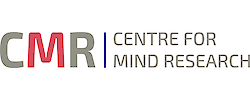ADHD in Adulthood
European City of Science 2022 in Leiden or Online - 15 October 2022
ADHD Europe, Impuls & Woortblind and the University of Leiden invite you join us online (at no cost) or in Leiden (for a small fee).
Visit our website to register or find out more about this event https://adhdeurope.eu/news/power-of-adhd/
The link to register your attendance is https://form.jotform.com/222403322292343
ADHD Awareness Month #TalkingThursdays on Youtube
These 4 webinars will be about sharing their best practices and experiences about Diagnosis/Treatment/ADHD in Women (Relationships, Workplace, Empowerment and ‘Whoa! What Happened’ which will focus on children and behaviour. More information about #TakingThursdays https://adhdeurope.eu/news/understanding-a-shared-experience-adhd-awareness-month-2022/
ADHD Women Project
Members of ADHD Europe will be sharing their individual experiences in their national languages. Follow us on social media in October to get the links to the youtube videos.
Please follow the upcoming activities on either Facebook Linkedin Twitter Instagram
https://linktr.ee/ADHDWomen
European Events during October
See our webpage which highlights member organisations in Europe hosting events!
https://adhdeurope.eu/upcoming-events/
Attention deficit/hyperactivity disorder (ADHD), with the main symptoms being inattention, impulsiveness or hyperactivity, has long been considered a disorder limited to childhood. It is now known that ADHD can persist into adulthood in 50-80% of people with ADHD, with varying degrees of severity and symptoms, and is associated with other mental and somatic illnesses. With a prevalence of 2.5%, it is even a frequently occurring disease. ADHD is mainly caused by genetic risks and early environmental influences with an impact on brain development. At the individual patient level, however, there are different profiles in terms of etiopathogenetic, clinical, neuropsychological and brain imaging findings.
Management
Deputy
Fields of activity / methods
The aim of the FG is to develop innovative therapeutic approaches based on new findings on the development of symptoms in a translational - ideally personalised - approach and to make them available to patients as quickly as possible.
The main methods used in the translational FG are: genetic biomarker research, multimodal cerebral imaging (especially functional MRI), neural stimulation methods (e.g. alternating current stimulation), clinical-pharmacological and non-pharmacological studies (psychotherapy), digitalised medicine, symptom-based basic research in virtual reality.
Current projects:
- DFG: Stim-ADHD - A parallel randomized double-blind shamcontrolled multicentre trial of transcranial direct current stimulation (tDCS) in adult attention deficit hyperactivity disorder (ADHD). Referenz: STR 1514/3-1. Coordinator: Department of Psychiatry and Psychotherapy, University Leipzig
- Pharmacological and non-pharmacological interventions for adults with ADHD: protocol for a systematic review and network meta-analysis, Award ID: NIHR203035
- Federal Ministry of Education and Research (BMBF): Clinical study on evidence-based, step-by-step care of ADHD in older adolescents and young adults (ESCAlate). Funding reference number: 01EE1408D (2015 - 2021)
- BMBF: AwareMe - Support of self-management for patients with mental behavioural disorders. Funding reference number: V5IKM052 (04/17 - 09/21)
- BMBF: Mobile system for ADHD therapy using Transcranial Electrical Neurostimulation (Attention). Funding reference number: 13GW0273F (01/19 - 01/22)
- MEDICE: Multimodal adult ADHD assessment by means of Virtual Reality
- BONFOR, Instrument 2: VR-based and eyetracking-assisted attention refocusing training for ADHD patients
- Cognitive training in ADHD (Prof. Lux)
- Multisensory integration - a functional MRT study (PhD project M. Schulze)
- Effect of physical activity on ADHS (PostDo Dr. Mehren)
International cooperation
- Psychiatric Genetic Consortium (PGC ADHD)
- Donders Institute for Brain, Cognition, and Behavior and the University of Groningen (PhD Project on Emotion Regulation in ADHD, Pieter Hoekstra)
- ENIGMA
- University of Melbourne, Prof. Dr Dave Coghill (Fmfc Chair of Developmental Mental Health)
Memberships
- https://eunethydis.eu/
- https://www.adhd-federation.org/about-us/board.html (Prof. Philipsen founding member)
- https://adhs-deutschland.de/Home.aspx (Prof. Philipsen scientific advisory board)
- https://www.zentrales-adhs-netz.de/
Members of the research group
Doctors:
- Prof. Dr. Alexandra Philipsen
- Dr. Markus Kölle
- Dr. Behrem Aslan
- Dr. Alexandra Lam
- Dr. Sarah Mackert
- Dr. Helena Rosen

















